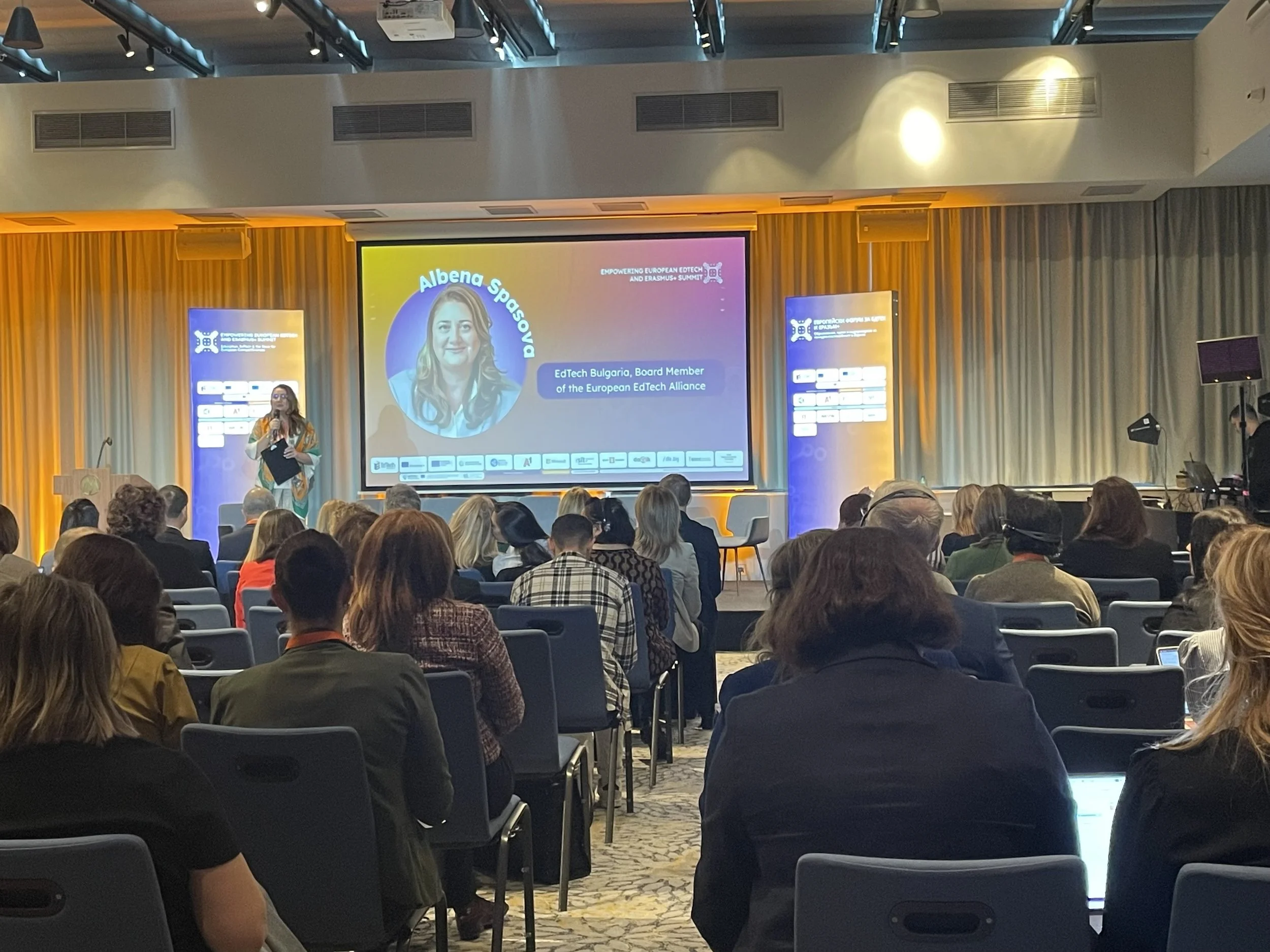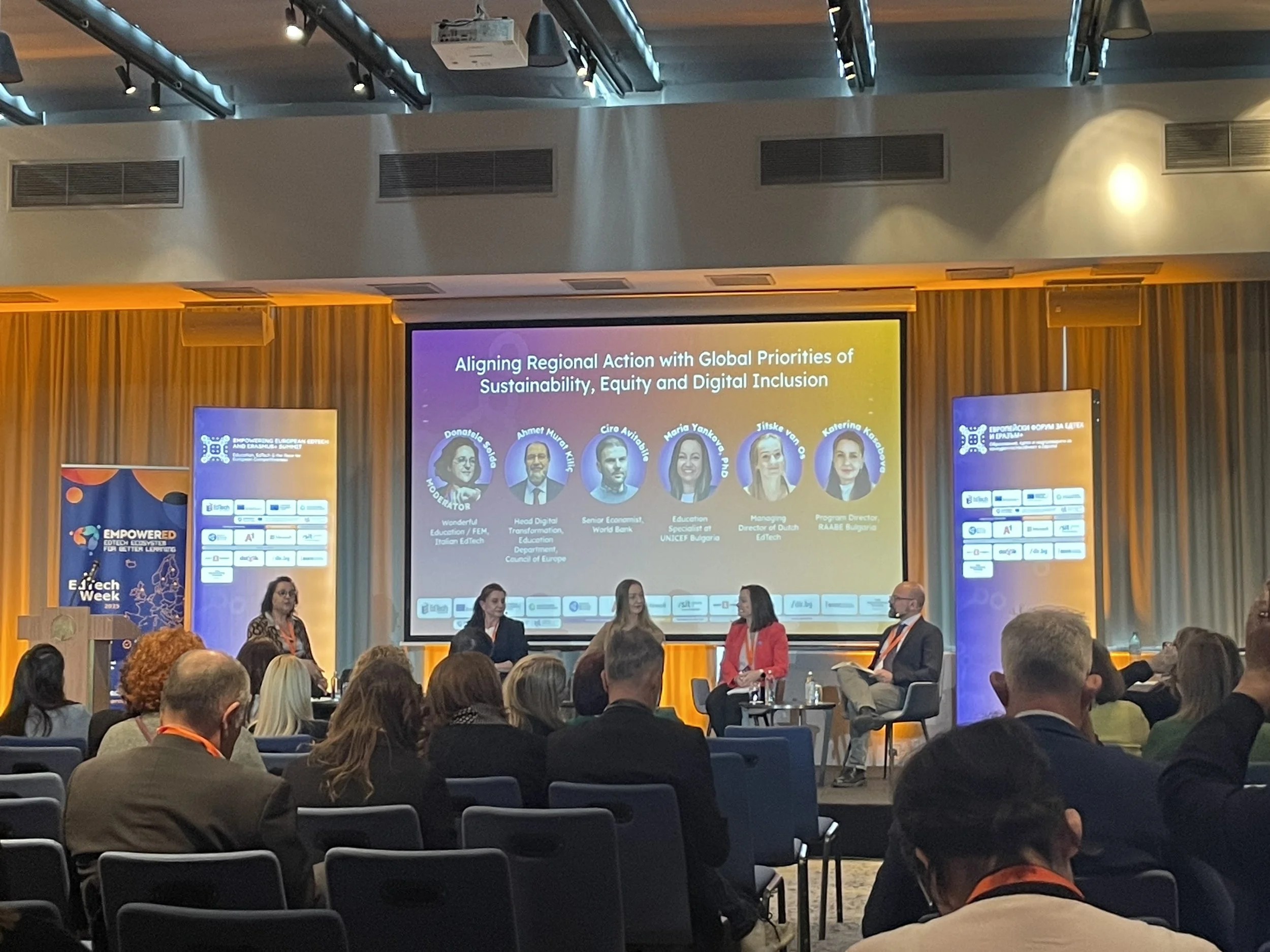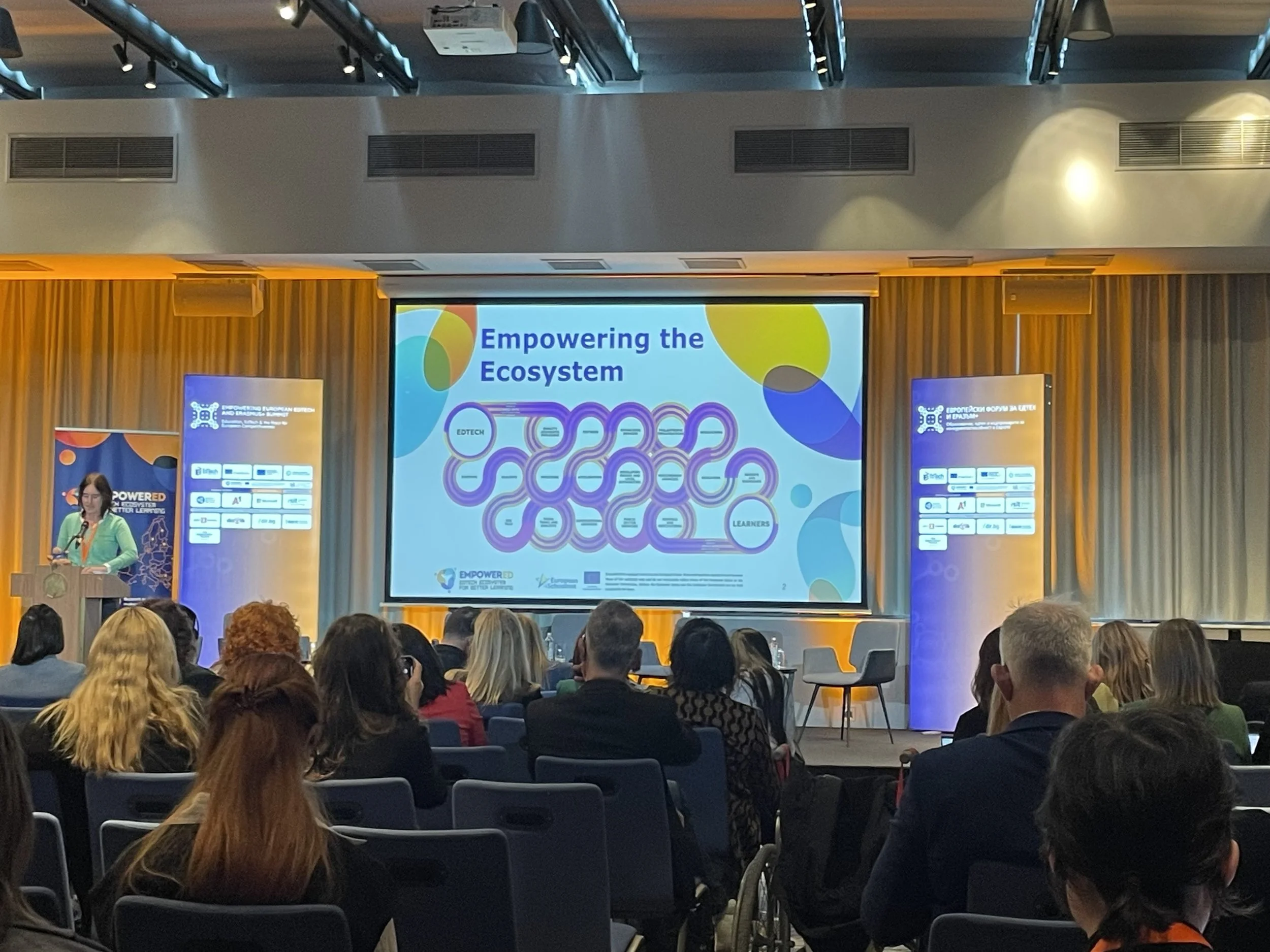EdTech from and for Europe: Insights from the Sofia EdTech Summit
The European EdTech sector is often described as vibrant, innovative, and full of potential. But it is also fragmented. Europe’s educational landscape spans more than 200 languages, a wide range of cultural and pedagogical traditions, and very different national systems for funding and procurement. This diversity is a strength, but it makes it difficult for EdTech tools and services to scale and for stakeholders to work together with ease.
The European Commission invests significantly in digital transformation in education, yet money alone does not solve the core issue. According to Georgi Dimitrov, Head of Unit, Directorate General for Education Youth Sport and Culture, the real barrier is the lack of a truly integrated single market for education. Alignment remains the missing piece: alignment of people, rules, incentives, procurement pathways, and funding mechanisms.
At the same time, there is no shortage of motivation. Teachers want to help shape the tools they are asked to use. EdTech companies want to build products that respond to real classroom needs. Researchers want to generate evidence that matters. Policymakers want to understand how to support all of this. Yet they often speak different languages, operate in silos, and rarely sit at the same table.
This is why bringing these groups together is not a nice-to-have. It is essential.
A forum for alignment
The Empowering European EdTech and Erasmus+ Summit, held on 4 November 2025 in Sofia, Bulgaria, set out to do exactly that. Organised jointly by the EmpowerED project, the Bulgarian National Erasmus+ Agency, and EdTech Bulgaria, the event gathered actors actively shaping European EdTech alongside those steering Bulgaria’s digital transformation.
Participants included representatives from the European Commission’s DG CNECT and DG EAC, the European EdTech Alliance, the Council of Europe, and a range of EmpowerED partners from across Europe. High-level Bulgarian participation reinforced the national relevance, with contributions from the Minister of Education, the President of the Union of Bulgarian Teachers, and the Head of the Erasmus+ National Agency.
The aim of the forum was straightforward: to bring policy, technology, and practice closer together and to discuss the direction of Europe’s educational transformation.
Digital sovereignty as a priority
One of the strongest messages coming out of the summit was the central role of digital sovereignty. Europe has reached a point where most of the platforms used in schools and universities are not European. Data is hosted elsewhere. Algorithms are opaque. And while students may be among the fastest adopters of digital tools, they and their teachers rely on systems developed and governed outside Europe.
The digital transformation of education cannot be separated from wider European values. Recent legislation – from the AI Act to the Digital Services and Digital Markets Acts – has laid the foundation for trust, but the next step is building capacity and solutions within Europe itself. As Jannie Jeppesen, Chair of the European EdTech Alliance, put it:
“We need EdTech from and for Europe.”
Digital sovereignty is a matter of industry competitiveness, but it is also about agency. If learners and teachers cannot understand or influence the technology they rely on, they are not digitally sovereign. According to keynote speaker Antoaneta Angelova-Krasteva, Director for Innovation, Digital Education and International Cooperation at the European Commission, today, only around 43 per cent of European students have basic digital skills. Strengthening those skills, and ensuring technology serves people rather than the other way round, is therefore essential.
Why a multi-stakeholder approach matters
A recurring theme of the summit was that no single group can drive this transformation alone. Teachers need safe spaces to experiment, ask questions, and test tools before they reach the classroom. Startups need access to real learning environments and understand the language of education. Governments cannot keep pace with the speed of technological change, which is why partnership is not optional.
Good practice for cross-stakeholder cooperation already exists. Some of them were highlighted during the summit:
Erasmus+ remains one of the most effective connectors across borders.
The National Education Lab AI (NOLAI) in the Netherlands brings together schools, researchers, and companies to co-develop solutions to problems identified by teachers.
The Global EdTech Testbed Network (GETN) creates a learning place for testbeds and research communities from around the world.
The EmpowerED project has focused on community-building to help stakeholders learn with and from each other.
DOHE’s Global EdTech Resource Map lists support mechanisms from around the world for EdTech providers.
Teacher training, testing, and confidence
Several speakers underlined that digital transformation will not succeed without embedding it into teacher training. Teachers often do not feel equipped to integrate technology and are hesitant to admit what they do not know. If technology is to serve education, teacher confidence and agency must be part of the solution, not an afterthought.
Ideas highlighted included bringing EdTech companies into teacher training programmes, supporting teachers as they implement digital tools rather than leaving them to work in isolation, and creating more real-world testing environments for technologies before they reach the classroom.
When teachers help shape tools, rather than simply receive them, adoption and impact can follow naturally.
Entrepreneurship and impact
Europe does not lack innovative ideas or technological capacity. What is often missing is a bridge between innovation and classroom relevance. Two needs were identified:
Better understanding among EdTech providers of evidence and learning science, so products are designed for real impact rather than novelty.
Clearer pathways for scaling, including support for testbeds, cross-border pilots, and shared language between policy and startups.
There is also a call to include entrepreneurship in digital education so that young people can become creators rather than only consumers of digital education tools and services.
Sustainability beyond the project cycle
A familiar challenge is that projects funded for two or three years often end once the funding ends, even when they show promise. Sustainability requires early planning, hybrid funding models, and alignment with long-term policy priorities. As several speakers noted, Europe cannot continue to pilot innovation without also embedding it.
Synergies between projects, better continuity mechanisms, and industry partnerships were all raised as ways to ensure that successful work does not disappear when the grant period ends.
The summit in Sofia made clear that Europe already has the ingredients for a strong, values-driven EdTech ecosystem. What is needed now is coordination, shared language, and spaces where policy, research, practice, and innovation meet on equal terms.
Read more about the event and its speakers here.



